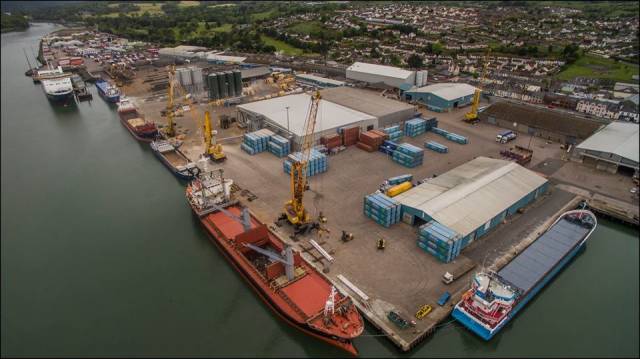#Ports&Shipping - Over the next decade the investment needs of European ports amounts to 48 billion EUR, according to a report by the European Sea Ports Organisation (ESPO).
Many port investments score high in creating societal value but the return on investment for the investor, the port managing body, is often low and slow. For these investments, external funding is needed. Ports have only been able to obtain 4% of the CEF transport budget over the last three years. These are the main results from the Study ESPO launched in spring 2018 in preparation of the Connecting Europe facility II proposal which came out on 6 June 2018.
ESPO welcomes the CEF II proposal and appreciates the efforts that have been made to further optimise and ensure the continuation of this important financial instrument for transport.
“ESPO is fully recognising the importance and benefits of the Connecting Europe Facility; we should use the experience of the past three years to further optimise this instrument; we count on the European Parliament and the Council to safeguard the budget proposed, which is a real minimum. Given their important role as nodes of transport, energy, industry and blue economy ports deserve more than the 4% share they obtained over the last three years. Concretely we believe that ports and the maritime dimension should be better recognised under the cross-border priority. Seaports have the potential to link any number of Member States through maritime transport, as well as to link the sea with a wide hinterland and economic area that in most circumstances exceeds the national borders. They are by nature cross-border and should be recognised in that respect”, says ESPO’s Secretary General Isabelle Ryckbost.
Based on the outcome of the ESPO study, ESPO formulated concrete recommendations and suggestions in its position paper to further optimise the Commission proposal.
ESPO asks the Parliament and Council to:
- ensure that an increased share of the CEF budget is accessible to ports, reflecting their essential role in the European Transport network;
- recognise the cross-border nature of ports and the maritime cross-border dimension which has the potential to link a port not only with their neighbours but with all other maritime Member States;
- re-integrate the currently pre-identified port and MoS projects in the Annex of pre-identified sections of the new proposal;
- put more emphasis on the decarbonisation investments to be made;
- better define the military mobility budget share, which will receive 1 on 5 EUR of the CEF transport budget and to prioritise the transport policy priorities in defining the dual-use;
- use the military mobility budget to enhance the resilience of Europe’s infrastructure and, in particular its port infrastructure, to cyber security threats and ensure that ports can play their vital role as part of the emergency supply chain;
- exempt projects with a limited impact on the national transport network from Member State endorsement;
- highlight the importance of the maritime connections of the EU with its neighbouring countries;
- ensure optimal connectivity of Ireland to mainland Europe in the context of Brexit;
- foresee a review mechanism following the review of the TEN-T guidelines in 2023 and the outcome of the Brexit negotiations.
The proposal is currently under discussion in the Parliament and the Council. Last week, the EP-TRAN rapporteurs, Pavel Telička (ALDE, CZ) and Marian-Jean Marinescu (EPP, RO), presented their draft report (read or download) in the TRAN Committee. The deadline for amendments is 13 September.































































